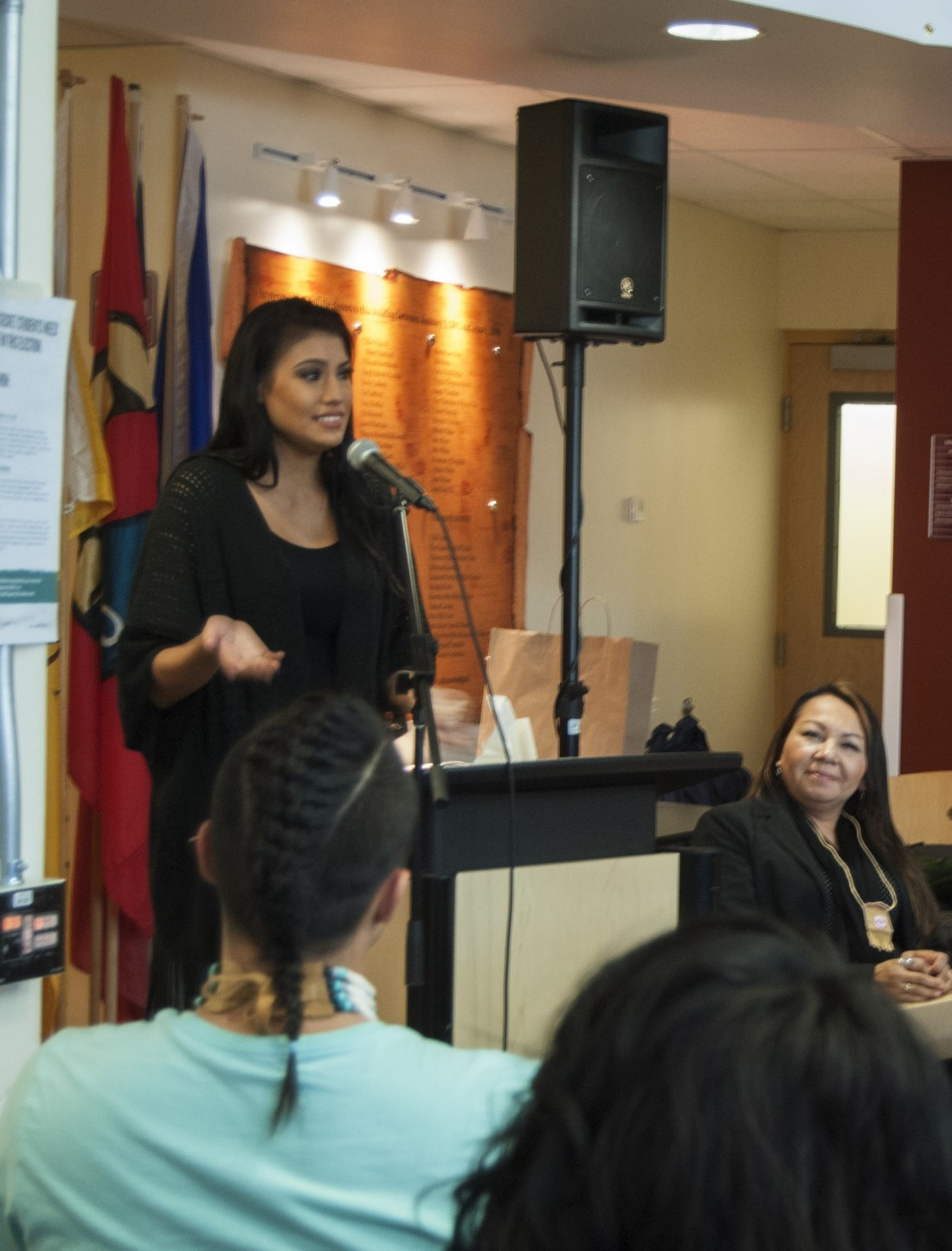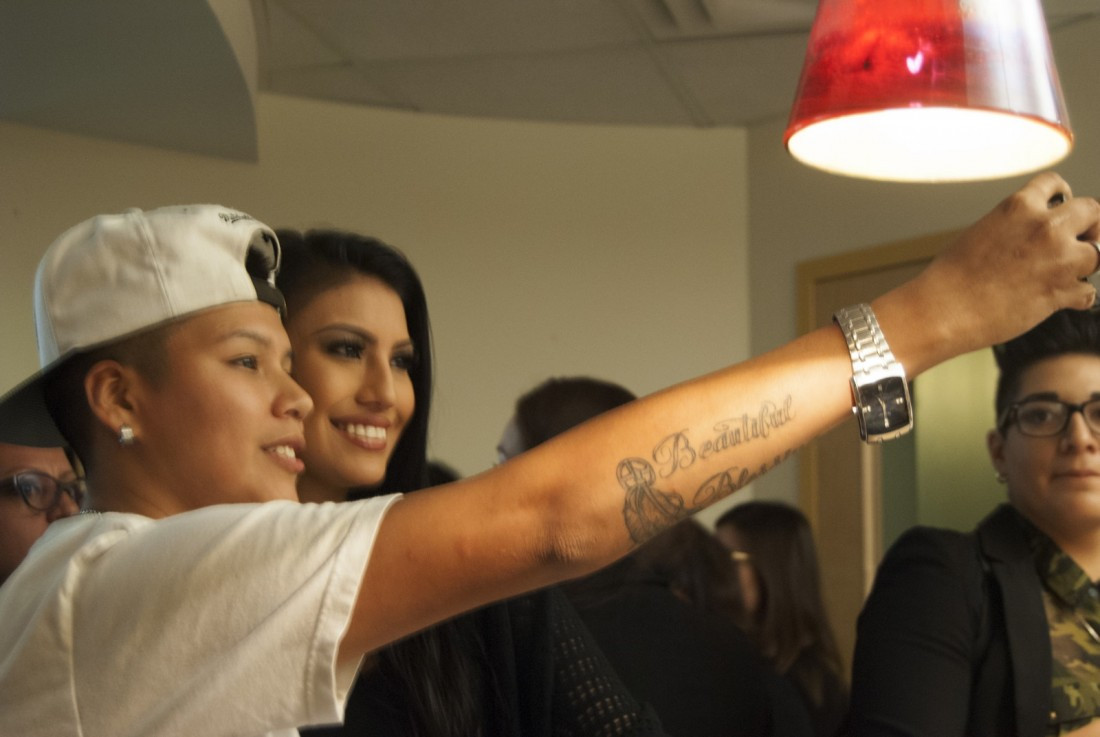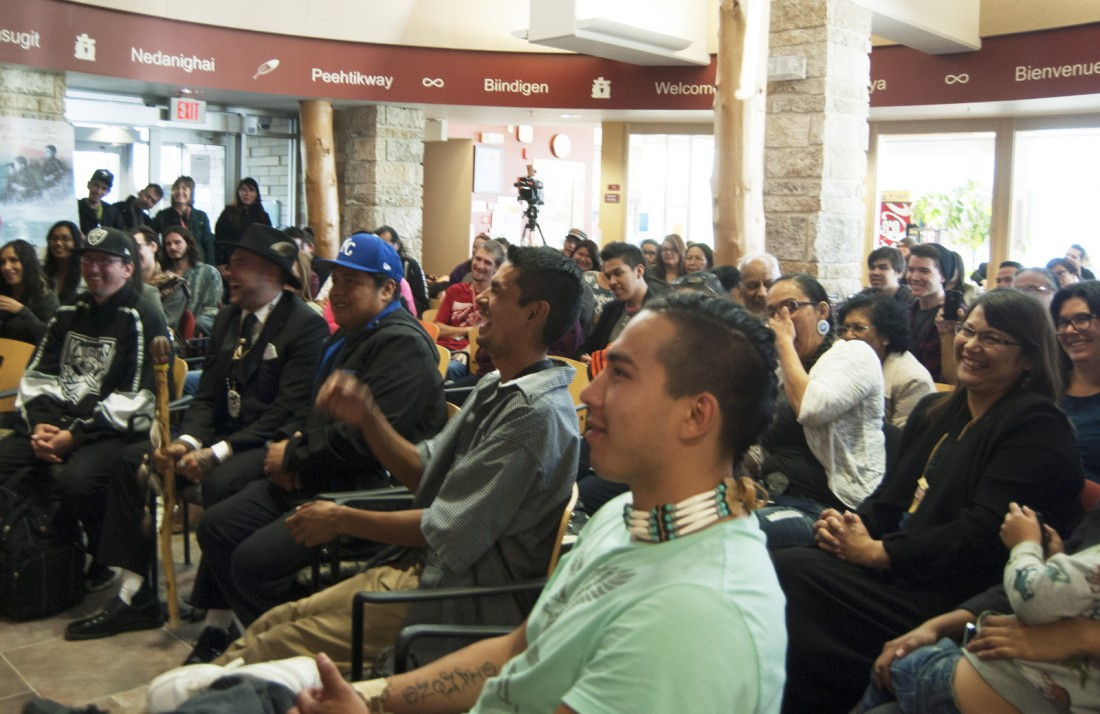Girl on fire
Mrs. Universe rocks the vote in Winnipeg
If it takes a beauty queen to encourage indigenous youth to vote, Ashley Callingbull-Burnham doesn’t mind being that person.
“I called out the Canadian government the second day I was crowned and people were just blown away,” Callingbull- Burnham says. “Honestly, I think it’s kind of sad that it took for a beauty queen to bring attention to murdered and missing indigenous women because people have been talking about this for years.”
“Only now they listen because pageant girls aren’t supposed to be political and shock everyone.”
The reigning Mrs. Universe, who hails from Enoch Cree Nation in Alberta, was in Winnipeg on Oct. 2 for the Empowering the Indigenous Student Vote forum.
The day of workshops – organized by the Canadian Federation of Students’ Manitoba chapter and Aboriginal student councils from the University of Manitoba (U of M) and the University of Winnipeg (U of W) – also included talks by grand chiefs Sheila North Wilson (Manitoba Keewatinowi Okimakanak) and Derek Nepinak (Assembly of Manitoba Chiefs).
Callingbull-Burnham was the keynote speaker at the Migizii Agamik Indigenous Student Centre on the U of M campus.
She spoke about her rough childhood and her mother’s previous boyfriend sexually, physically and verbally abusing her starting at age five.
She recounted growing up starving and collecting bottles to bring to the recycling depot to make money.
Callingbull-Burnham’s stories spilled out fast and frank, leaving her and some of the audience members in tears.
“I remember to this day the smell of the bottle depot,” she says. “And me going there all the time as a child, the smell of that place resonated with me and I thought, ‘If this place is disgusting and I depend on this to live, am I disgusting?’”
At 17, her life turned around when she and her mother escaped the abusive ex-boyfriend and went to live with her grandparents.
She immersed herself in her First Nations culture and volunteered with many charities, which helped spur her personal healing.
“I got so strong with my beliefs and I started to feel strong again. I started to feel happy going to ceremonies and sweats. I felt like this is who I am. I’m not what people say about me and I’m not that dirty native and all (those) racist remarks,” Callingbull-Burnham says.
At 20, a friend suggested she try pageants to raise more awareness about her charity work.
That was the only reason Callingbull- Burnham signed up for pageants in the first place, she says.
“If I was going to be able to use the system for other people to gain from it, then why the hell not?”
Fast forward to 2015 and she is winning the Mrs. Universe crown this past summer in Berlin.
Being the first indigenous woman and the first Canadian woman to ever win the pageant earned her plenty of media attention – and a platform to raise her voice in the middle of a federal election campaign.
“A lot of (First Nations) people don’t like to vote because they like to be sovereign, but it is so crucial right now. In the past 10 years, this government has failed us. It has failed First Nations people,” she says.
Callingbull-Burnham’s impassioned speech earned a standing ovation from the crowd of about 60 people.
She was swarmed afterward by a slew of fans wanting to take selfies with her, including Sadie Lavoie, co-president of the U of W’s Aboriginal Student Council.
“What she said was so impactful and it just showed that resiliency and humility that she holds, shining that beauty from within outwards,” Lavoie says. “It was honestly so impactful and I’m still in awe right now.”
Published in Volume 70, Number 5 of The Uniter (October 8, 2015)









